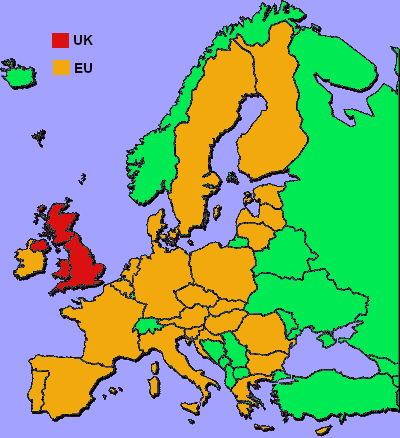
Circle the area on this map

B. Maintaining an open border with free travel between the Republic of Ireland and the UK was a key part of a 1998 agreement to end years of sectarian violence in the UK country of Northern Ireland. With the UK leaving the EU and Ireland remaining a member, some worry the open border may be threatened in spite of promises to avoid any barriers.
C. Majorities in both Scotland and Northern Ireland voted against Brexit while England and Wales voted for it. After the Brexit election, Scotland’s parliament voted to hold another independence referendum. If Northern Ireland is allowed to remain in the EU customs union under the final agreement, Scotland is expected to seek the same treatment.
D. Belgium, France, Italy, Luxembourg, the Netherlands and West Germany formed the European Economic Community in 1958. In 1973, Denmark, Ireland and the UK became the first nations to join the original six.
A. Brexit supporters often complained that decisions made in Brussels, Belgium, harmed British businesses and immigration. Besides the top EU operations, Brussels hosts the NATO military alliance which includes Canada, US, UK and most members of the EU.